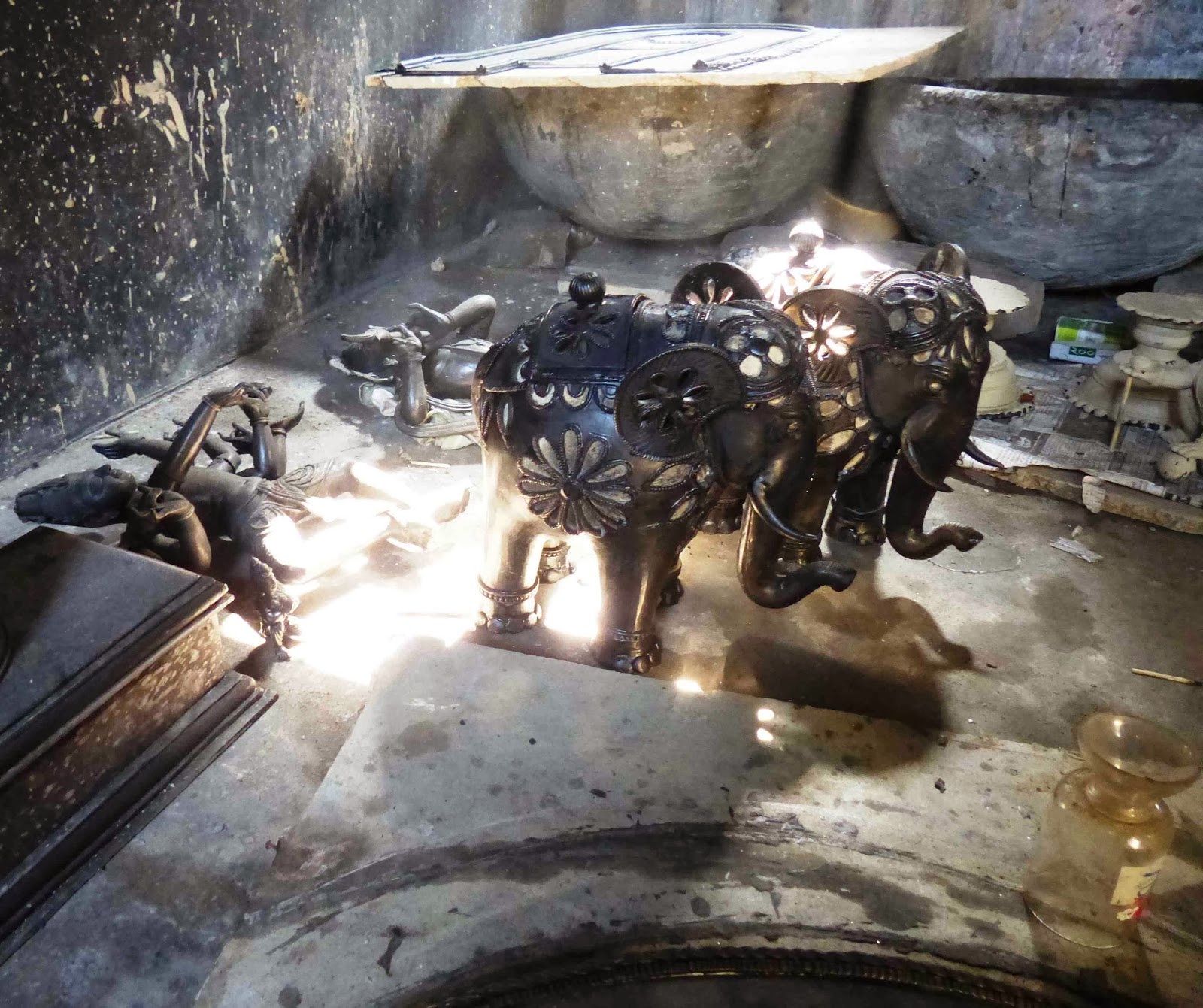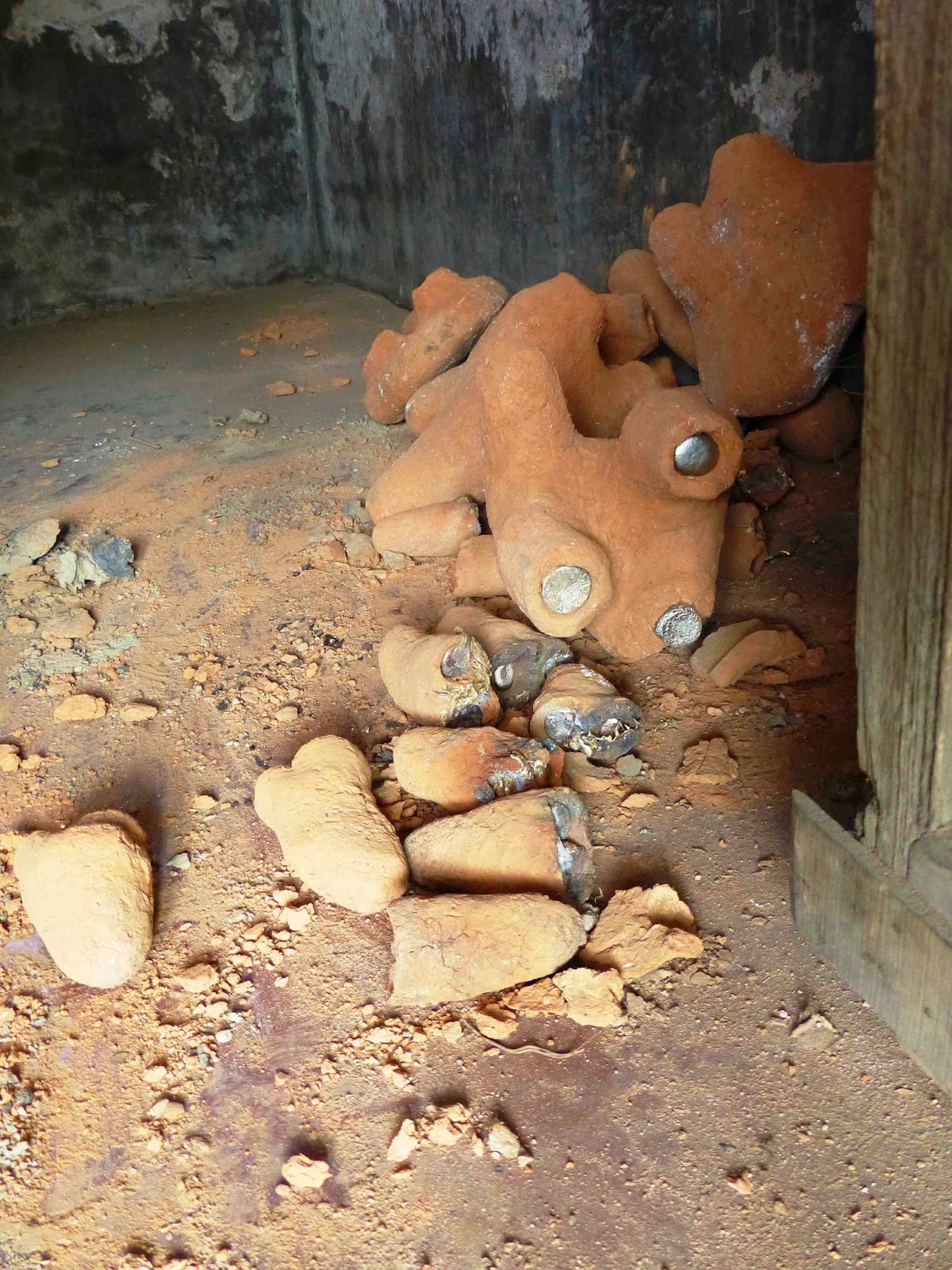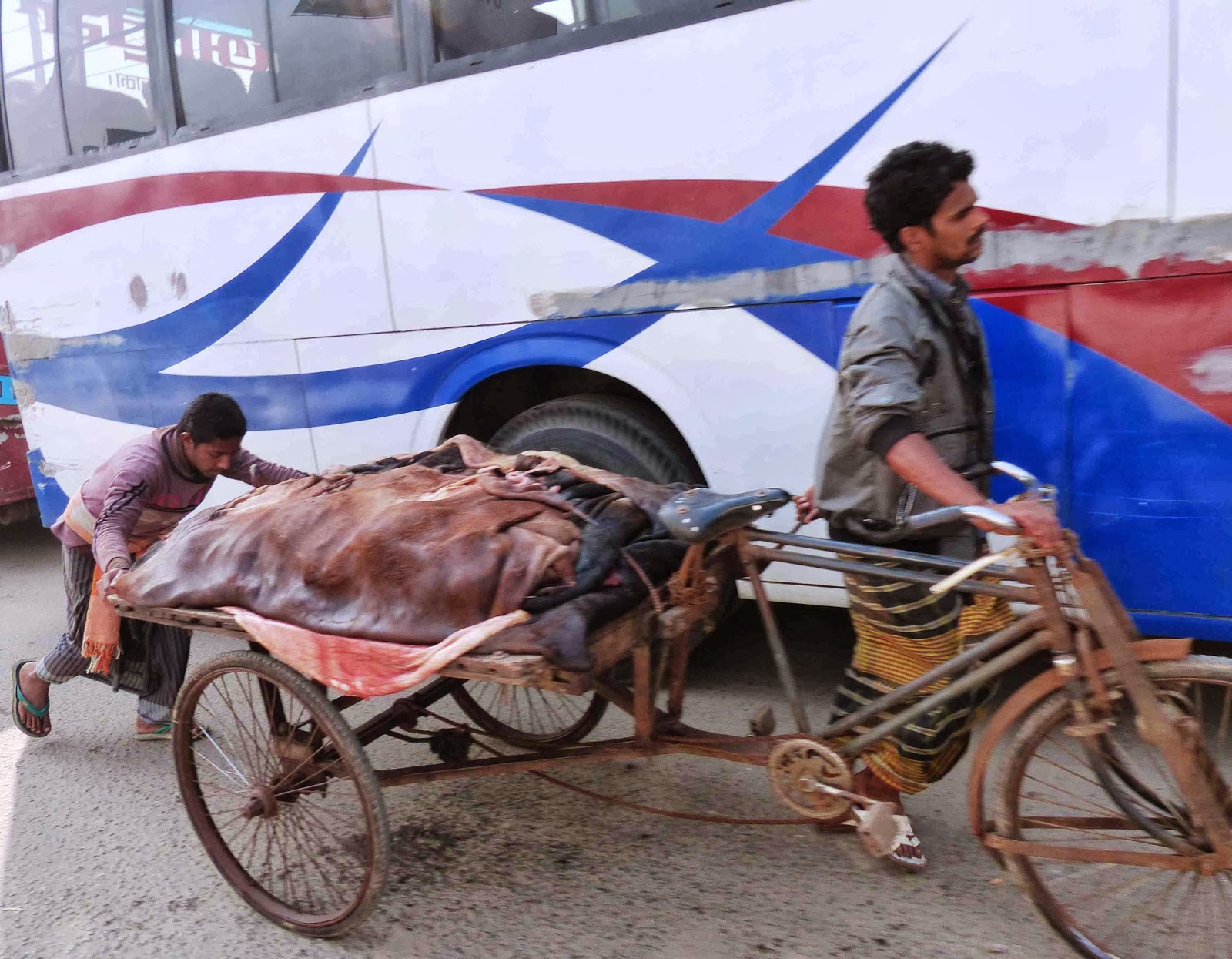It is still tranquil in the city, so we made a quick visit to a local village just outside of Dhaka which is known for brass working. Unfortunately the traffic is also almost back to usual, so the 40km took almost two hours.
The bronze workshop is located in an old house - the likes of which are no longer seen in Dhaka.
We managed to arrive while a BBC team was there, filming for an English language learning program. We duly signed waivers and exchanged business cards - it's possible we may make the cut!
The bronzes are cast using the lost wax method -
The steps:
1. A rough shape of the statue is made out of clay.
2.This
clay shape is covered by about 1 cm of wax into
which the intricate details of the outside of the statues are carved. The wax is a mixture of beeswax and paraffin wax, and the proportions vary with the temperature
The designs in the wax are hand sculpted, and the wax is kept malleable by a very high watt lightbulb
3.This
is then covered by a further layer of clay. The whole thing is then
fired, melting and burning the wax to produce the mould into which brass
is then poured. The clay is then removed and a statue is revealed (hopefully).
The statue is then completed by trimming, polishing and the addition
of any fine decoration.
 |
| bronze crucibles | | |
 |
| a mis-cast |
As always, the workshop and process seemed more interesting and artistic to me than the products available for sale.
 |
| Hindu deity. The bronze workers are Hindu |
Even though we have seen plenty of workshops such as the tin works in Rwanda and the Bronze casters in both Ouaga and Bobo it is always fascinating to watch such a skilled and time consuming way of working.
We went for a walk in the village after visiting the metal works, trying to follow directions to visit the hindu temple, we missed our turn and ended up observing rice drying and being turned in the sun by teams of ladies
 |
| Wooden carved goddesses |
 |
lovelies in leopard print
|
and of course the on journey home we spotted a few things
 |
| lifelike? statues |
 |
| oops |
 |
| always room for one more |
 |
| fashion twins (don't see it often here) |
































































